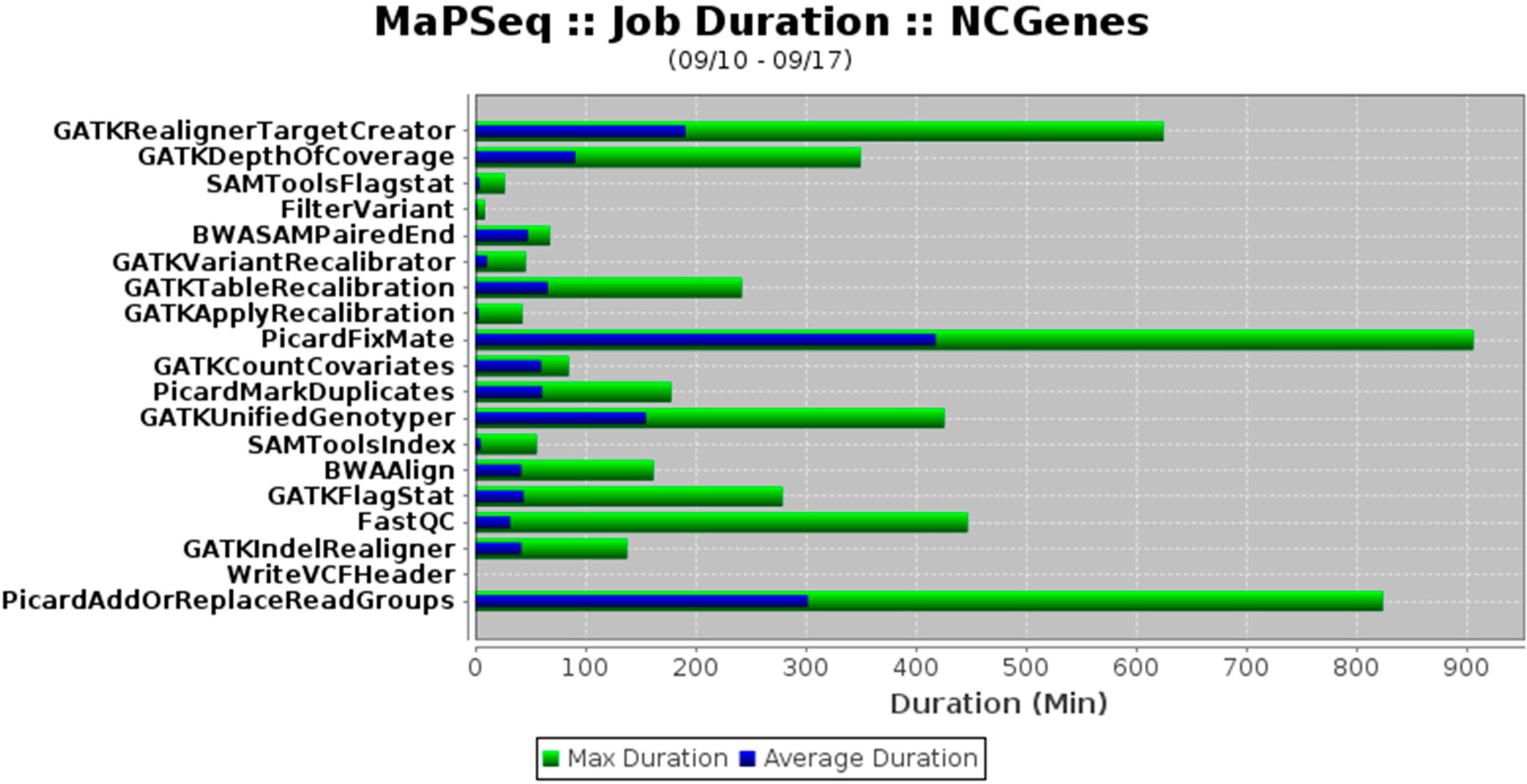Difference between revisions of "Template:Article of the week"
Shawndouglas (talk | contribs) (Testing new bulletpoints.) |
Shawndouglas (talk | contribs) (Updated article of the week text.) |
||
| Line 1: | Line 1: | ||
<div style="float: left; margin: 0.5em 0.9em 0.4em 0em;">[[File: | <div style="float: left; margin: 0.5em 0.9em 0.4em 0em;">[[File:Fig2 ReillyInformatics2015 2-3.png|240px]]</div> | ||
'''"[[Journal:MaPSeq, a service-oriented architecture for genomics research within an academic biomedical research institution|MaPSeq, a service-oriented architecture for genomics research within an academic biomedical research institution]]"''' | |||
'''"[[Journal: | |||
[[Genomics]] research presents technical, computational, and analytical challenges that are well recognized. Less recognized are the complex sociological, psychological, cultural, and political challenges that arise when genomics research takes place within a large, decentralized academic institution. In this paper, we describe a Service-Oriented Architecture (SOA) — MaPSeq — that was conceptualized and designed to meet the diverse and evolving computational workflow needs of genomics researchers at our large, [[hospital]]-affiliated, academic research institution. We present the institutional challenges that motivated the design of MaPSeq before describing the architecture and functionality of MaPSeq. We then discuss SOA solutions and conclude that approaches such as MaPSeq enable efficient and effective computational workflow execution for genomics research and for any type of academic biomedical research that requires complex, computationally-intense workflows. ('''[[Journal:MaPSeq, a service-oriented architecture for genomics research within an academic biomedical research institution|Full article...]]''')<br /> | |||
<br /> | <br /> | ||
''Recently featured'': | ''Recently featured'': | ||
: ▪ [[Journal:Grand challenges in environmental informatics|Grand challenges in environmental informatics]] | |||
: ▪ [[Journal:The development of the Public Health Research Data Management System|The development of the Public Health Research Data Management System]] | : ▪ [[Journal:The development of the Public Health Research Data Management System|The development of the Public Health Research Data Management System]] | ||
: ▪ [[Journal:The need for informatics to support forensic pathology and death investigation|The need for informatics to support forensic pathology and death investigation]] | : ▪ [[Journal:The need for informatics to support forensic pathology and death investigation|The need for informatics to support forensic pathology and death investigation]] | ||
Revision as of 14:29, 18 April 2016
Genomics research presents technical, computational, and analytical challenges that are well recognized. Less recognized are the complex sociological, psychological, cultural, and political challenges that arise when genomics research takes place within a large, decentralized academic institution. In this paper, we describe a Service-Oriented Architecture (SOA) — MaPSeq — that was conceptualized and designed to meet the diverse and evolving computational workflow needs of genomics researchers at our large, hospital-affiliated, academic research institution. We present the institutional challenges that motivated the design of MaPSeq before describing the architecture and functionality of MaPSeq. We then discuss SOA solutions and conclude that approaches such as MaPSeq enable efficient and effective computational workflow execution for genomics research and for any type of academic biomedical research that requires complex, computationally-intense workflows. (Full article...)
Recently featured:










